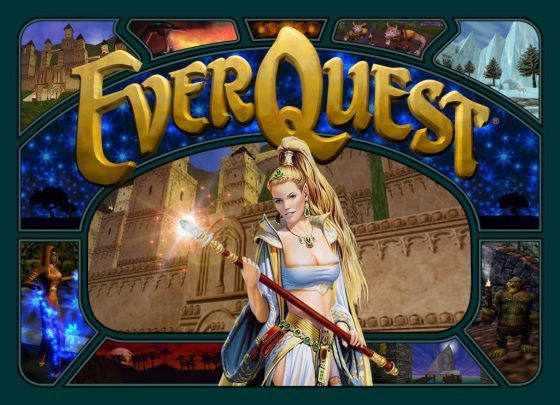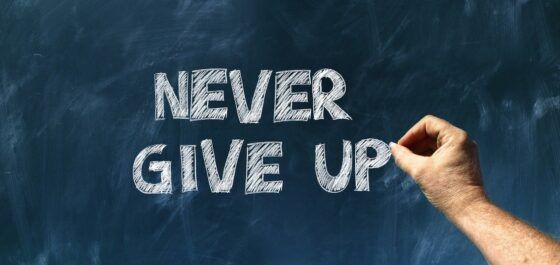Welcome to our interview with Eric Siu – pro-gamer, podcaster, CEO, and author of upcoming book Leveling Up: How to Master the Game of Life. As well as many other fascinating topics, the discussion between Eric and our Head of Content Alex Sinclair Lack focused on how Eric’s early years of gaming equipped him with the tools to command and conquer life and the business world.

“How did MMOs shape who I am today? It’s everything.”
What were your first gaming experiences and how did they lead into a pro-gaming career?
Back when I was a teenager, esports wasn’t the beast it is today. You couldn’t earn a ton of money like you could now, but you could play at an elite level. I started off with classic RPGs and FPSs like Diablo and Quake as well as Command and Conquer which was my first experience of a real-time strategy (RTS) game.
As I learned the elements around those, I just wanted to dig deeper and deeper. I soon realized that I wanted to play at the highest level so I looked for the best teams and honed my skills until life led me to Counter Strike which I played at a high-level for some time. Then I moved onto World of Warcraft, and once again sought out the best teams. It was all about team, team, team. I wanted to be at the top of my game, and from a young age I realized that was the path to the top.
CS: Source, those were the days! As a WoW and EverQuest player in your younger years, it’s safe to say that you experienced the MMO genre in its golden era. How did playing those games shape who you are today?
How did MMOs shape who I am today? It’s everything. Two lessons I remember learning playing EverQuest, even at the age of twelve, were that I had to be part of an elite guild to do the best things, and that I had to do seemingly unreasonable things to get unreasonably good results. With WoW it was the same thing. Sometimes we’d wake up at 3am to do a raid because we were on a PvP server and didn’t want our enemy to be able to get to the boss first.
I was twelve-years-old playing with college students, lawyers, people that owned their own planes! It’s safe to say that I was out of my element, but to be trusted at that age gave me a ton of confidence and the understanding that I needed to work hard, communicate well, and perform well. It was the oldest lesson in the book: hard work pays off.
Again, at the age of 12, I won an EverQuest Championship. And with that win came the understanding that I didn’t have to be particularly strategically original to succeed in a best-of-the-best tournament. I could watch the best of them, imitate and improve their strategies, and replicate their success. So that’s largely what I did and that’s a lesson I’ve carried over into my life ever since.
How did you apply those MMO-gaming lessons into such a successful career?
Well, I’d like to preface my answer by saying that I see my career as only just getting started. We have all these businesses, these audiences, but every day I see myself as starting at Level 1. I’m building, sure, but I still adopt a beginner’s mentality. I have views that may be strong, but I must be willing to change them when presented with new information.
When I wake up in the morning, I’m filling out my journal, I’m reminding myself of all the things I’m grateful for, then I’m meditating for 10-30 minutes, and hopping on the exercise bike for an additional half hour. When I do these things, I feel like I’m getting a little stronger every day; I’m powering up. And then the actual workday begins, and I’m charged up and ready to engage with the challenges and puzzle pieces of the day. And frankly, it’s fun to do that! I’m blessed to feel like I’m playing the game of life, and the ultimate game – which is business.
You’ve described gaming, just like sports, as a gateway to the real world. What did you mean by that?
When you're training in sports, you're training in an enclosed ecosystem of teamwork and struggle, right? You're seeing how your physical metal matches up with other people’s. And when you're training in the world of gaming, you're going into a shadow world. You're learning teamwork, you're learning resilience, you're learning all of these things that typically aren’t taught well in school.
If you overtrain in sports, you can get hurt. And if you overtrain in the world of gaming, you can also get hurt. That can be psychological harm or physical – you can become really unhealthy because you’re playing games all day. There is a need to train intelligently in both fields, but when done successfully the benefits of sports and gaming are parallel. Lessons from both can be taken from their own mini-worlds and empower players to make a bigger impact on the real world. In that sense, with the right attitude both games and sports are a gateway into real-life success.
Despite the many studies revealing the positive cognitive, social, and psychological benefits of gaming, there is still a lot of resistance. What advice would you give to young gamers whose families see gaming as a negative?
Some of the most successful people in the world, like Elon Musk or Mark Zuckerberg, played a ton of games when they were younger. There’s one legendary gamer who I watched growing up, Thresh – real name: Dennis Fong. I used to see him winning Ferraris, Lamborghinis, things like that. And now, fast-forward 10, 15, 20 years and he’s become a highly successful entrepreneur who has sold three start-ups. I had him on the Leveling Up podcast and you could see that the manner in which he thinks is rooted in the lessons he brought in from gaming. It all still applies.
There’s a stigma tied towards gaming, the same as with Bitcoin or Snapchat; they’re dismissed as toys initially, but then you look at the growth rates. You can’t stop gaming in the same way as you can’t stop those other phenomena. Snapchat has a market cap of $95 billion right now. My advice for gamers? Use it as a training world just like sports. Understand that a lot of the skills you’ve gained from gaming can have a big impact on the world. You should feel pride in the skills you’ve gained; don’t let your confidence be killed by people who don’t understand gaming when they put it down. Be proud of the hobby you’re passionate about. And hey, just make sure you come back from the shadow world. You shouldn’t stay there for too long.
Gaming has been a real saviour for a lot of people during this crisis. Yet even in a time when staying at home is encouraged, spending free hours gaming can come with a lot of guilt for not being more productive. As a gaming advocate, what advice would you give to people with gamer-guilt?
At the end of the day, you have to think about what you're happy with. If you're playing lots of games and you’re happy, there’s nothing wrong. If you find yourself playing games all day, and you're not content, there's a problem – something needs to change.
As great as gaming is, I can guarantee you that you’re going to need more interaction than that. Even when I was playing games 10-14 hours a day, I still needed other interaction. It’s really easy to get sucked into that world but understand that as a human being you need human interaction and other productive outlets for your self-esteem. It’s vital not to over-index in one area. It’s about finding a balance that’s right for you that doesn’t neglect your responsibilities and other areas of your life.
You host the highly popular “Marketing School with Neil Patel” and “Leveling Up” podcasts, could you recommend some episodes that you think our readers would appreciate?
On Marketing School, we have one on how to properly begin learning marketing skills. We have another one on how to get your first marketing job. Those are both great starting points. As for Leveling Up, there’s an episode I’d recommend about why I’m writing the book which is a great introduction. But for MMOGames readers, check out the episode I mentioned with Quake and Doom champion Dennis Fong. It’s a great episode in which we discuss what it took to compete at a high-level in the world of gaming, and how those lessons were transferable into life and business.

At age 27, you bought an entire business for $2. How did that come about?
Single Grain is the ad agency that I own. It was a failing company which had neglected to adapt to the times. I’d previously helped turn around an online education start-up. And a partner in that company was my podcast co-host Neil Patel. He saw what I did for them and asked if I could find a way to turn around Single Grain.
The four other partners of Single Grain wanted out, so I negotiated a deal where I’d buy the entire company for $2. However, I put in a contingency that stated if the company failed, I would owe nothing. My reasoning was that if the project failed, my downside would be capped and it could be written off as a learning experience. And yet if it succeeded, the upside would be essentially unlimited.
In the first year, it’s safe to say I made things go from bad to worse. But just like those early lessons in gaming, perseverance triumphed. Fortunately, my asymmetric bet paid off – we made it work!
What advice do you have for people who would like to start a business but are struggling to create time and passion around busy lives filled with hobbies, day jobs, and other responsibilities?
It just depends on what you want, and you must define what it is that you want – what it is that makes you happy. What is it that you’re passionate about? There’s this concept in Japan known as ikigai – it’s an intersection between all these things. We all have the same 24 hours each day, you carve out the time for what is important to you.
I remember when I was working a full-time job while I was interning. So, I changed my schedule to show-up early for my full-time job. I’d start work at 6am and work until 2pm, after that I’d study marketing until midnight. I’d just keep doing it because I really loved marketing – to me, it felt like a game wrapped in puzzles.
It of course depends on what you want. I’m not saying everyone needs to start a business, but if that’s what you want to do then just keep telling yourself that other humans have done it. If you want to get to that level, you must beat the current level, or you don’t deserve to be at the next level. That’s just how life is.

We imagine you’re very busy, but do you still have time to game and what do you play?
Only the ultimate game of business. Again, there are so many enigmas and puzzles to be rearranged and solved: I can do a podcast, I can recruit amazing people, I could buy a company or network with people doing amazing things. There’s just so many different things that I can do, and I feel like while I do it, I can add value to the world.
And so, life is just so fun. And I'm just very thankful for all the training I got from the world of gaming from ages nine to twenty-two. Do I regret it? Not for a second because it's made me into who I am today.
To hear more from Eric, follow him on Instagram, Facebook, YouTube, and Twitter. Alternatively, pre-purchase your copy of Leveling Up: How to Master the Game of Life.
Our previous interview was with Ryan Scollan – the award-winning entrepreneur behind esports mental health advocacy initiative Gscience. If you’re concerned about your mental health during this ongoing pandemic or at any time, do not be afraid to ask for help.